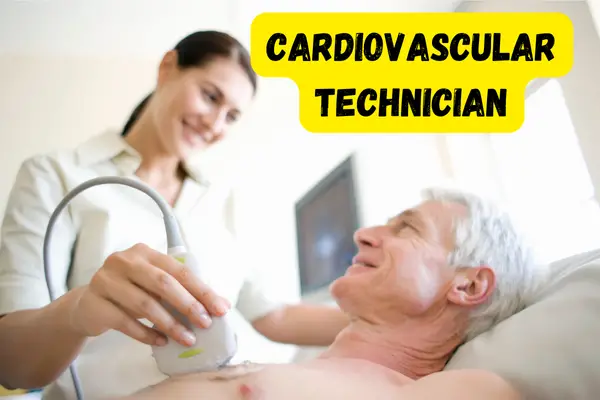Table of Contents
ToggleIntroduction to a Cardiovascular Technician’s Role
A cardiovascular technician plays a vital role in the healthcare industry by assisting physicians in diagnosing and treating heart and blood vessel conditions. Utilizing an array of imaging technologies, cardiovascular technicians perform essential diagnostic tests that help identify heart diseases and vascular issues. This profession not only involves sophisticated medical procedures but also requires a compassionate approach to patient care.
What is a Cardiovascular Technician?
A cardiovascular technician is a healthcare professional trained to operate imaging tools that provide detailed pictures of the heart and blood vessels. Their expertise includes non-invasive techniques such as echocardiography (heart imaging) and vascular ultrasound (blood vessel imaging). Additionally, they are skilled in performing invasive procedures like cardiovascular catheterization, stent placement, balloon angioplasty, and pacemaker implantation. The ability to explain these procedures to patients and alleviate their concerns is a critical aspect of their job.
Work Environments for Cardiovascular Technicians
Cardiovascular technicians can be found in a variety of healthcare settings, including:
- Hospitals: Many cardiovascular technicians work in hospital settings where they assist in emergency and routine diagnostic procedures.
- Diagnostic Laboratories: These professionals also find employment in specialized diagnostic labs, where they perform tests to help diagnose cardiovascular conditions.
Education and Training Requirements
To become a cardiovascular technician, individuals typically need a high school diploma or GED. Following this, aspiring technicians usually pursue an associate degree from an accredited program. Many programs offer specialized training in cardiovascular technology, which can significantly enhance a technician’s skills and employability.
Cardiovascular Technician Programs Near Me
Finding the right educational program is crucial for aspiring cardiovascular technicians. Prospective students should look for accredited schools that offer comprehensive cardiovascular technician programs. These programs provide both theoretical knowledge and hands-on training, preparing students for the demands of the job.
Cardiovascular Technician Salary
According to the Bureau of Labor Statistics, the median salary for a cardiovascular technician is approximately $78,210 per year. This attractive salary signifies the specialized knowledge and proficiency essential in this profession. Additionally, experienced technicians or those with advanced certifications may earn higher salaries.
Job Opportunities for Cardiovascular Technicians
The demand for cardiovascular technician jobs is expected to grow as the prevalence of heart disease and other cardiovascular conditions continues to rise. This growing demand creates numerous job opportunities in various healthcare settings, from hospitals to private clinics and diagnostic laboratories.
Cardiovascular Technician Job Description
A cardiovascular technician job description typically includes tasks such as:
- Operating imaging equipment to create images of the heart and blood vessels.
- Assisting physicians during diagnostic and therapeutic procedures.
- Explaining procedures to patients and helping them remain calm.
- Monitoring patients’ vital signs during procedures.
- Maintaining and calibrating equipment to ensure accuracy and safety.
Finding the Right Cardiovascular Technician School
Choosing the right cardiovascular technician school is an important step toward a successful career. Prospective students should consider factors such as accreditation, program length, curriculum, and clinical training opportunities. Schools that offer robust support services and job placement assistance can also be advantageous.
Conclusion
A career as a cardiovascular technician offers a rewarding blend of technical expertise and patient care. With the right education and training, individuals can enter this growing field and contribute significantly to the diagnosis and treatment of cardiovascular conditions. Whether working in hospitals, diagnostic labs, or private clinics, cardiovascular technicians play a crucial role in the healthcare system. Their specialized skills not only help save lives but also provide a sense of fulfillment that comes from making a difference in patients’ lives.
In summary, if you’re considering a career as a cardiovascular technician, it’s essential to research and choose the right educational program, understand the job requirements, and be prepared for a rewarding and dynamic career in healthcare.
Author
-

My name is Pooja Yadav. I have over 5 years of experience in the tech and tech education industry. I specialize in digital marketing, social media optimization, and helping others learn about technology. I'm passionate about staying up-to-date with the latest trends and sharing my knowledge with others.
View all posts


I like this blog it’s a master piece! Glad I detected this ohttps://69v.topn google.Leadership